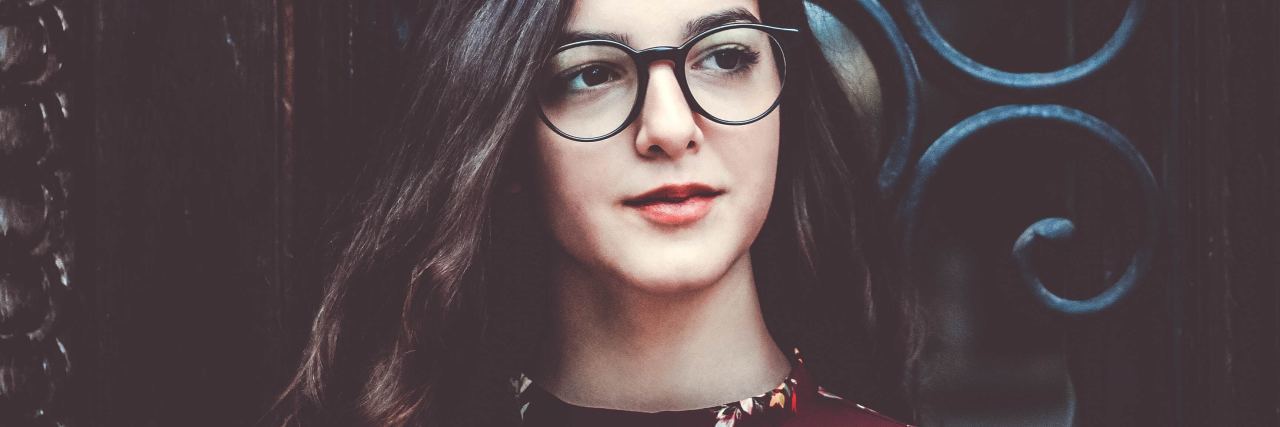How My Mental Health Recovery Is Like Wearing Glasses for the First Time
When I was 10 years old, I told my mom I thought I needed glasses and she didn’t believe me. See, my best friend had just gotten glasses and she thought I just wanted them to be more like her. However, when I persisted, she agreed to take me to the eye doctor, mostly to get me off her back, I’m sure. Much to her surprise, it turned out I did, in fact, need glasses. The first time I put them on, I remember being so amazed at how clearly I could see everything on the drive home. I could see the individual leaves on the trees around us; I could see the street names on all of the signs; I could see the world with a new perspective. You see, it wasn’t until I actually put the glasses on that I realized what I had been missing out on. I didn’t realize my eyesight was any worse than anyone else’s — I just assumed what I saw was the same thing as what everyone else was seeing.
My experience of mental health is much the same.
It can be very easy to go through life thinking you are alone in your experiences, thinking you are the only one who has ever felt the way you feel or thinking everyone else is going through the same things and they just happen to be handling it all much better than you are. I was sitting in a university lecture on psychopathology the first time I realized my experiences might not be normal. We were reading through the DSM, looking at the diagnostic criteria for various anxiety and mood disorders and all of a sudden, it clicked — these thoughts and feelings I was having, that I had been having for as long as I could remember, weren’t necessarily things everyone else was going through. For so long, I had chalked it up to the stress of being a full-time student and working part-time and being four hours away from home. But now, I could see that maybe, just maybe, there was something more at play.
Even after learning all I could about psychology and the brain and all these disorders, it never occurred to me that my mental health would ever be considered “bad” enough to merit a real diagnosis or treatment. In much the same way that I didn’t know how bad my eyesight was until I put on glasses for the first time, I didn’t realize how much of my life was impacted by my mental health until I started making it a priority. For some people, this might mean medication or therapy; for others, it might simply mean regular exercise, meditation and healthy eating. Everyone is different. Just as my glasses wouldn’t do much to help someone who is farsighted, there is no one-size-fits-all prescription for mental health.
In the same way that some people wear glasses or contacts, some people take medication or go to therapy. This is nothing to be scared or ashamed of. Sure, some people might call you “four eyes” or laugh or judge because they don’t know what it’s like, but there are more and more people out there who do understand and who are there to support you. In fact, just as there are people who you would never know wear contacts, there are probably more people in your life than you are aware of who have some experience with mental illness.
Now I’ve put on my glasses, I can’t imagine going back to living without them. Sure, if I forget them at home by accident, I can make it through the day without them, but they definitely make my life easier and more enjoyable. I may never know what it’s like to wake up and be able to see clearly as soon as I open my eyes, just as I may never know what it’s like to live a life entirely free of anxiety. That’s OK, though, because I know what I need to do in order to be able to see clearly through both of these obstacles. Maybe someday I’ll be able to live without them, but until then, I’m more than happy to keep wearing my glasses proudly.
Photo by Dorothy Puscas on Unsplash

